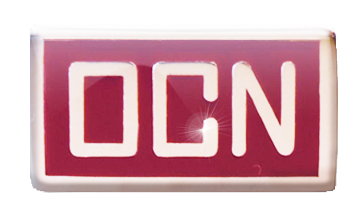We offer the region’s most advanced services and treatment options for cancer and blood disorders, offering you the highest quality care from diagnosis to prevention. This video shows what a new medical oncology or chemotherapy patient could expect as they begin their treatment here. Don't be scared. You are not alone. Our experienced staff will be with you every step of the way.
Fighting cancer with chemotherapy
Some patients with cancer may be treated through medical oncology. Commonly known as chemotherapy or chemo, medical oncology uses special drugs to destroy cancer cells.
Unlike surgery or radiation therapy which focuses on one specific area, chemotherapy works throughout the body. It can destroy cancer cells that have metastasized, or spread, to parts of the body far from the original tumor.
Chemotherapy may be the only kind of treatment a patient needs, or it may be combined with other treatment to relieve symptoms of cancer. Generally, chemotherapy drugs are more powerful when they are used with other drugs. It is common for doctors to use a combination of chemo drugs to kill more cancer cells and reduce the chance a patient could become immune to a particular drug.
Your doctor will speak with you about which drug or combination of drugs, the frequency, and length of chemotherapy treatment is best for you. All of these decisions will depend on several factors including:
Extent of cancer growth
Location of the cancer
Type of cancer
Your general health
Quality chemotherapy services
Our team provides the region’s highest quality oncology services from the expertise of our doctors and nurses to the latest advancements in chemotherapy treatment.
Our commitment to quality shows as we are recognized by a national organization. The June E. Nylen Cancer Center is certified through the QOPI® Certification Program, LLC, a wholly owned subsidiary of the Association for Clinical Oncology, and an affiliate of the American Society of Clinical Oncology (ASCO). In order to achieve this Certification, our medical oncology and hematology program has met or exceeded a benchmark score on numerous measures that compare the quality of care against national standards. To earn this voluntary certification we undergo an on-site survey and peer review by a select team of oncology professionals at least once every three years.
In addition, many of our nurses are recognized as Oncology Certified Nurses from the Oncology Nursing Society, the nation’s only accredited oncology-specific certification program for registered nurses. This ensures our patients receive the best care possible at the June E. Nylen Cancer Center.
How chemotherapy works
A patient usually receives chemotherapy in cycles. Each cycle includes a treatment period of one or more days when treatment is given, followed by a recovery period of several days or weeks. The number of cycles will be determined by many factors including the type of cancer and extent of its growth.
Chemo drugs can be given in a variety of ways:
Injection into a vein through an IV or intravenous line
Injection into a muscle or under the skin
By mouth (oral)
Patients may request or be required to receive the drugs through a catheter or port-a-cath (often just called a port) – a thin, flexible tube that stays in place until treatment is over. Patients with catheters or ports avoid the discomfort of having a needle inserted into a vein for each treatment. Our team will explain the benefits of a catheter/port to you as well as how to care for it and keep it clean.
In most cases, our patients receive chemotherapy at the cancer center or one of our satellite clinics. However, a short hospital stay may be needed for some patients depending on the type of chemo drug given and the patient’s general health.
Many patients have questions about the side effects of chemotherapy and how to manage symptoms. Some patients have more than one side effect and other patients get few, if any, side effects from chemotherapy.
We encourage you to speak with your doctor or patient advocate about your specific concerns about chemotherapy.
Side effects of chemotherapy
The side effects from chemotherapy vary greatly from patient to patient and depend on the drugs and doses a patient receives.
Chemo drugs affect cells that divide rapidly such as cancer cells as well as blood cells. Blood cells help fight infection, help the blood clot, and carry oxygen to the body. When blood cells are affected by chemotherapy, patients may experience side effects such as:
Bleeding easily
Increase in infections
More bruising
Tired or weak feeling
Rapidly diving cells in hair roots and cells that line the digestive tract may also be affected. This can result in additional side effects including:
Diarrhea
Loss of hair
Nausea
Poor appetite
Vomiting
Your doctor will tell you which side effects are most common with your chemotherapy treatment, how long they might last, and when you should seek medical attention for them. You may also receive medicine to prevent some side effects before they occur. Most side effects, such as hair loss, are temporary and will end once your treatment is over.
Before you begin your first round of treatment, one of our education nurses will thoroughly go through your treatment plan and the expected side effects and ways to help manage them.
We offer a variety of support services to help patients feel their best during chemotherapy treatment. Your patient advocate can provide you with information on nutritional care and wig boutique to help you manage the side effects of chemotherapy.






